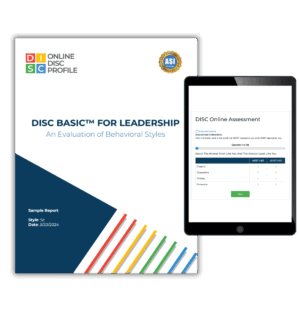Understand and Apply the Four DiSC Leadership Styles
Adam Stamm
Managing Partner: Online DISC Profile
Learn the Four DISC Leadership Styles
The DISC Leadership Styles are based on the DISC model of personality.
DISC measures an individual’s behavioral tendencies and preferences, which shape our personality. The model categorizes leadership styles into four main types based on the individual’s dominant traits.
It’s important to note that there isn’t a “best” DISC Leadership Style or a single way anyone should lead.
The four DISC Leadership styles offer a model to help leaders understand how they naturally lead. Here is an overview of the four DISC Leadership styles:
Dominant (D) Style: This style is characterized by individuals who are assertive, direct, and results-oriented. They make decisions quickly and focus on accomplishing goals and tasks.
Influencing (I) Style: This style is characterized by individuals who are outgoing, sociable, and enthusiastic. They are good at motivating others and thrive in social situations.
Steadiness (S) Style: This style is characterized by individuals who are reliable, patient, and consistent. They seek stability and create environments where teamwork is valued.
Conscientious (C) Style: This style is characterized by individuals who are analytical, detail-oriented, and precise. They value accuracy and create environments where consistency and the production of high-quality results thrive.
Everyone has a blend of each of the four styles, but we will all naturally lean toward a specific DISC Leadership style more than the others.
Find your DISC Leadership Style with the DISC Basic Leadership assessment –>
DISC Leadership Styles are based on Behavioral Needs
Our behavioral tendencies are based on our behavioral needs, which affect how we communicate a lead. These values are developed over time and are likely a result of how we have found success and benefited throughout our lives.
The values for each style a determined based on two scales: How we perceive our environment (Skeptical / Receptive) and the pace at which we act (fast pace / moderate pace).


Depending on how you score on each scale will produce your unique DISC Leadership Style:
- Fast Pace + Skeptical = Dominance (D Type)
- Fast Pace + Agreeable = Influence (I Type)
- Moderate Pace + Skeptical = Conscientious (C Type)
- Moderate Pace + Agreeable = Steadiness (S Type)
The DISC Basic Leadership assessment goes one step further and helps leaders understand their behavior based on 12 leadership tendencies:
- Prioritizing – How a person determines the order for dealing with items or tasks based on established rules and structure
- Change Resistance – How a person engages with change.
- Building Rapport – How a person focuses when interacting with others.
- Reasoning – How a person uses evidence to think through and solve problems
- Careful Decision-Making – How a person approaches decisions and actions
- Accuracy – How a person focuses on correctness and exactness
- Work process alignment – how a person focuses on a process to follow through on work.
- Customer & Team Interaction – how a person engages with customers and stakeholders.
- Expressing Openness – How comfortable someone is expressing themself.
- Self-Reliance – How a person works on a team.
- Personal Drive – How a person sets goals and moves things forward.
- Providing instruction – How a person dictates directions and expectations.
These insights can help a leader understand what drives their goals and vision for the groups that they lead. Additionally, they can help a leader recognize when they are leaning too much on a particular strength and when they should adapt their behavior to meet the need of a situation better.
As an example, Building Rapport is a critical leadership skill set. This skill is measured by looking at whether a person focuses their time on building relationships or getting things done:

For this sample leader, their DISC Leadership Style shows that they are focused on building relationships. This is a valuable skill set! Strong relationships are vital for organizational success, but it’s imperative that leaders also recognize that they need to balance results with the relationships they are forming.
Find your DISC Leadership Style
The DISC Basic Leadership assessment helps leaders identify their natural preferences for leadership. Find your Leadership Style today!

